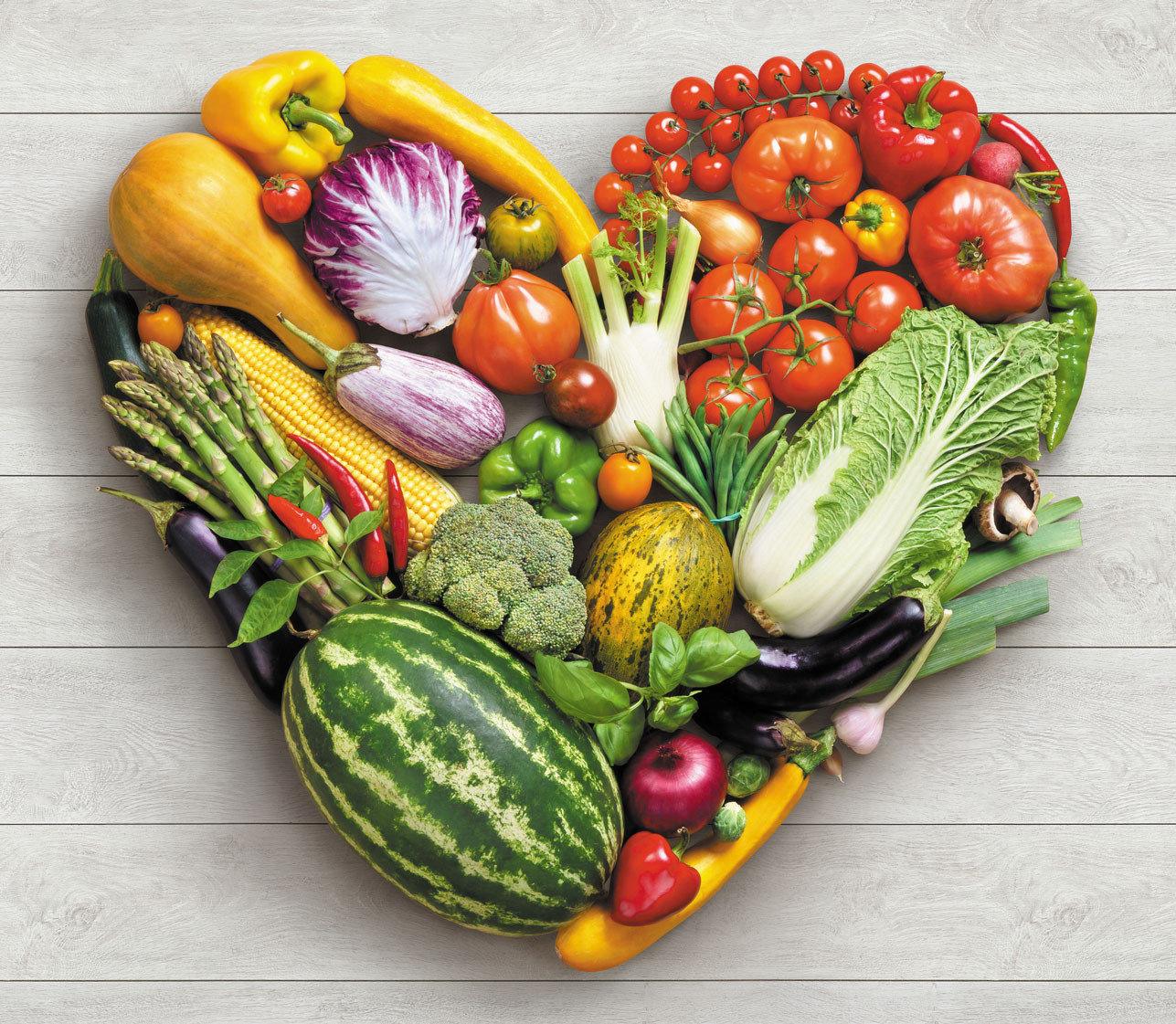Can Plant Based Beef Help You Lose Weight and Improve Heart Health?
Can Plant Based Beef Help You Lose Weight and Improve Heart Health?
Blog Article
Everything About Healthy Food: Benefits of Taking On Plant Based Options
The discussion bordering plant-based diet regimens has actually gotten substantial interest in current years. Numerous individuals are exploring the potential wellness benefits, nutritional advantages, and ecological influences linked with these nutritional options. As people become more familiar with their food's impact on wellness and sustainability, questions arise concerning the usefulness of embracing such a way of life. What specific adjustments can one anticipate, and just how might these choices reshape not only individual health but also the planet's future?
Recognizing Plant-Based Diet Plans
Although lots of people link plant-based diet plans mainly with vegetarianism or veganism, these diet regimens can include a wide variety of eating patterns that focus on whole, minimally refined plant foods. Such diet regimens commonly include fruits, veggies, whole grains, nuts, seeds, and legumes, while limiting or eliminating pet products. This adaptability allows people to customize their dietary selections according to nutritional requirements and individual choices. Some may take on a primarily plant-based diet plan while still periodically consuming meat or dairy, usually referred to as a flexitarian method. The emphasis remains on integrating even more plant foods, which can bring about a diverse range of dishes and tastes. Understanding these different interpretations of plant-based eating is vital for valuing its access and allure in contemporary food culture.
Health Conveniences of Plant-Based Foods
The wellness advantages of plant-based foods are significant, using a nutrient density benefit that sustains total wellness. Research indicates that these foods can boost heart wellness and play an essential role in effective weight administration. By integrating extra plant-based options, people might boost their dietary options and advertise lasting health.
Nutrient Thickness Advantage
Nutrient thickness plays a vital function in the health and wellness benefits of plant-based foods, making them an engaging choice for those looking for a balanced diet regimen. Plant-based foods, such as fruits, veggies, beans, nuts, and whole grains, are often rich in essential vitamins, minerals, and anti-oxidants while being reduced in calories. This high nutrient density enables individuals to consume less calories while still meeting their dietary needs. In addition, these foods are packed with dietary fiber, promoting digestion health and assisting in weight monitoring. By integrating nutrient-dense plant-based options, customers can enhance their general health, support their immune systems, and minimize the risk of persistent conditions. Eventually, the nutrient density of plant-based foods highlights their value in a health-conscious lifestyle.
Heart Health Renovation

Weight Monitoring Support
Along with promoting heart wellness, a plant-based diet plan can considerably assist in weight administration. This dietary technique highlights entire foods such as fruits, veggies, beans, nuts, and entire grains, which are usually lower in calories and higher in fiber compared to animal-based items. The high fiber material helps enhance satiation, lowering general calorie consumption. In addition, plant-based diet plans are commonly abundant in important nutrients while reduced in harmful fats, making it much easier to maintain a healthy and balanced weight. Sugar Free Sauces. Research indicates that people who embrace a plant-based way of life tend to have reduced body mass indexes (BMIs) and experience more successful weight reduction contrasted to those who eat meat-heavy diets. Subsequently, embracing plant-based options is a calculated option for efficient weight monitoring
Nutritional Value of Plant-Based Ingredients
Plant-based components are abundant in necessary nutrients, offering a diverse range of vitamins, minerals, and antioxidants that add to overall wellness. A comparison of protein sources reveals that while pet products are commonly deemed superior, several plant-based options give adequate protein and various other beneficial substances. Comprehending the dietary worth of these active ingredients can assist people make notified nutritional options.
Necessary Nutrients in Plants
Nutrient-rich ingredients located in plants supply a varied variety of essential minerals and vitamins that contribute substantially to general wellness. These active ingredients are abundant in vitamins A, C, and K, which support immune function, vision, and blood clotting, respectively. In addition, plants supply important minerals such as magnesium, potassium, and calcium, important for heart health, muscle mass feature, and bone stamina. The visibility of fiber in plant-based foods aids digestion and promotes a healthy gut microbiome. Anti-oxidants, found generously in veggies and fruits, help fight oxidative tension and lower swelling. Numerous plant foods are reduced in calories yet high in nutrients, making them an excellent selection for those seeking to keep a healthy and balanced weight while guaranteeing ideal nutrient consumption.

Comparing Protein Resources
Protein resources vary considerably in their nutritional profiles, with plant-based components supplying distinct advantages. Unlike animal proteins, which often include hydrogenated fats and cholesterol, plant healthy proteins have a tendency to be lower in these undesirable components. Legumes, nuts, seeds, and whole grains are abundant in vital amino acids, fiber, vitamins, and minerals. For instance, lentils give high healthy protein material alongside significant iron and folate, while quinoa is a full protein, using all you can try these out 9 important amino acids. Additionally, plant-based healthy proteins are often gone along with by anti-oxidants and phytochemicals that sustain total health and wellness. The shift to plant-based healthy protein resources not only improves nutritional consumption however also lines up with lasting dietary practices, reducing ecological effect and advertising lasting health benefits.
Ecological Impact of Plant-Based Consuming
As awareness of environment change expands, many people are discovering lasting nutritional choices that can considerably decrease their environmental footprint. Plant-based consuming has arised as a significant factor to decreasing greenhouse gas emissions, which are largely related to livestock manufacturing. The cultivation of fruits, beans, veggies, and grains commonly needs fewer sources, such as water and land, compared to pet farming. Additionally, plant-based diets can bring about reduced deforestation, as less land is required for grazing animals or expanding animal feed. By shifting in the direction of plant-based options, consumers can support biodiversity and promote healthier environments. Overall, accepting plant-based eating not only benefits individual health but additionally stands for a vital action toward ecological sustainability and conservation initiatives.
Conquering Common Misconceptions
While several individuals identify the benefits of a plant-based diet regimen, several misunderstandings usually hinder them from completely accepting this lifestyle. A common idea is that plant-based diet plans do not have sufficient healthy protein; however, many plant resources, such as legumes, nuts, and tofu, give adequate healthy protein. Additionally, some presume that this diet plan is pricey, when actually, staples like beans, rice, and seasonal veggies can be fairly More Bonuses budget friendly. One more misconception is that plant-based consuming is extremely restrictive, whereas it actually supplies a diverse range of tastes and foods. Ultimately, numerous worry that a plant-based diet regimen might lead to deficiencies, yet with appropriate planning, people can get all needed nutrients, consisting of minerals and vitamins, while appreciating a wide range of delicious dishes.
Tips for Transitioning to a Plant-Based Way of living
Making the shift to a plant-based lifestyle can be an enriching experience, though it usually requires some support to browse the initial changes. Individuals are encouraged to begin slowly, incorporating even more fruits, veggies, beans, and whole grains right into their meals while lowering meat and dairy products intake. Dish preparation is necessary; preparing a weekly food selection can assist relieve the adjustment and protect against last-minute harmful selections. Exploring brand-new recipes and cooking techniques can also boost the experience and maintain excitement about plant-based consuming. Additionally, joining support system or neighborhoods can offer inspiration and share useful suggestions. Ultimately, staying informed concerning nutrition assurances well balanced meals, preventing shortages while fostering a healthy and balanced, rewarding plant-based way of living.
Delicious Plant-Based Dish Ideas
Discovering tasty plant-based dish ideas can motivate individuals to embrace a more nourishing diet plan. One popular alternative is a hearty quinoa salad, featuring cherry tomatoes, cucumber, and a tangy lemon-tahini dressing. An additional favorite is a full-flavored lentil stew, packed with carrots, celery, and aromatic natural herbs, ideal for a calming dinner. For breakfast, over night oats made with almond milk, chia seeds, and topped with fresh berries supply a nutritious begin to the day. Additionally, a vivid vegetable stir-fry with tofu and a selection of vivid veggies can be a quick yet pleasing meal. Creamy avocado salute on whole-grain bread, sprinkled with seeds and seasonings, supplies a simple yet savory snack. These meals display the variety and richness of plant-based consuming.

Frequently Asked Questions
Can a Plant-Based Diet Offer Enough Protein?
The question of whether a plant-based diet plan can supply enough protein is common. Many sources, consisting of beans, nuts, seeds, and whole grains, can satisfy healthy protein requires effectively, supporting a nutritious and well balanced diet plan for individuals.
Are Plant-Based Diet Plans Suitable for Children?
The suitability of plant-based diets for kids relies on careful planning. Ample nutrients have to be assured, including vitamins, minerals, and proteins. With proper advice, such diet plans can sustain healthy growth and growth in kids.
Exactly how Do I Eat Out on a Plant-Based Diet?
Eating out on a plant-based diet plan involves looking for dining establishments with varied food selections, requesting for alterations, and checking out vegan-friendly alternatives. Planning in advance and interacting dietary preferences can enhance the dining experience while maintaining dietary selections.
What Are Usual Irritants in Plant-Based Foods?
Usual irritants in plant-based foods consist of soy, gluten, nuts, and seeds - Plant Based Beef. People complying with a plant-based diet plan needs to know these allergens and review labels meticulously to stay clear of adverse reactions and ensure secure intake
Can Plant-Based Diets Assist With Weight Reduction?
Research study suggests that adopting a plant-based diet plan may facilitate fat burning due to its typically lower calorie density and greater fiber web content. This combination can improve satiation, aiding people handle their calorie intake effectively. Lots of people link plant-based diet plans mainly with vegetarianism or veganism, these diet plans can incorporate a broad array of consuming patterns that see it here prioritize entire, minimally refined plant foods. Nutrient density plays a vital function in the health and wellness advantages of plant-based foods, making them a compelling selection for those seeking a balanced diet regimen. Plant-based diet regimens have been revealed to significantly enhance heart health and wellness, as they usually consist of components that support cardio function. In addition to promoting heart health, a plant-based diet can substantially aid in weight monitoring. A typical idea is that plant-based diets do not have enough healthy protein; nevertheless, numerous plant sources, such as beans, nuts, and tofu, offer enough healthy protein.
Report this page